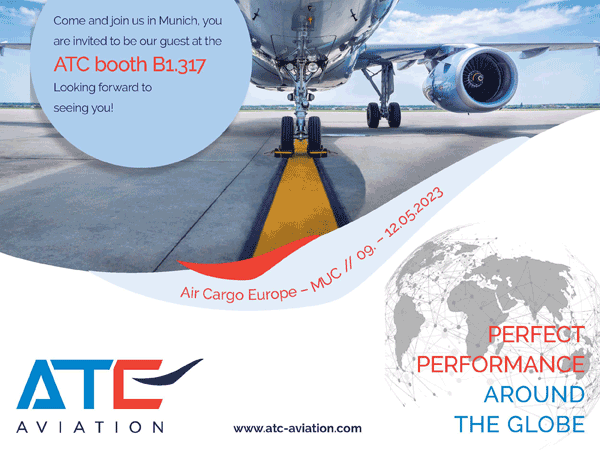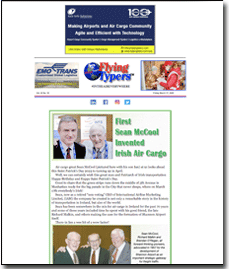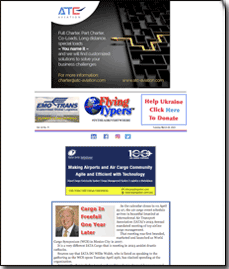 |
Spring is silently creeping into the landscape.
I had left Turin with little green and no foliage on the trees and today
I can see the colours changing to a pale, pastel hue of green all around
me. Each time the cycle repeats a new lifecycle begins. One wonders whether
all the change we appreciate is just an illusion, and we are in fact trapped
in cycles repeating themselves. Yet progress is perceptible, today’s
services are in general safer and more efficient, in particular in areas
such as aviation and aircraft. Flying fifty years ago was a profoundly
different experience. 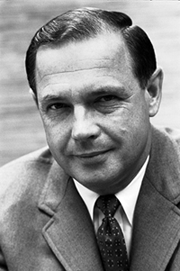 But
some believe it could have been quicker, if progress was free to do its
own work: on March 23rd 1973, precisely 50 years ago, Alexander P. Butterfield,
(left) Administrator, Federal Aviation Administration from 1973-1975
signed off the order to limit the speed of civil aviation to Mach 1 “one
of the most destructive acts of industrial vandalism in history,”
as Alex Tarbarrok puts in his book: “this speed limit has naturally
distorted the development of civil aircraft. For fifty years, the aviation
industry has worked to improve subsonic aviation. Commercial passenger
aircraft are safer and more economical today than they were in 1973, but
they are no faster. If we had propagated the rate of growth in commercial
transatlantic aircraft speeds that existed from 1939 to the mid-1970s,
we would have Mach-4 airliners by now. But the overland ban put an end
to all that. It made small supersonic aircraft, which need to fly shorter
overland routes, essentially illegal, closing off the iteration cycle
that could drive progress in the industry.” I am thankful to Mario
Ottiglio and his HLG newsfeed for drawing our attention to this point.
This allows me to return first-class into my tale about the FIATA HQ as
the second day was occupied – inter alia – by other two Institutes:
Customs and Airfreight. But
some believe it could have been quicker, if progress was free to do its
own work: on March 23rd 1973, precisely 50 years ago, Alexander P. Butterfield,
(left) Administrator, Federal Aviation Administration from 1973-1975
signed off the order to limit the speed of civil aviation to Mach 1 “one
of the most destructive acts of industrial vandalism in history,”
as Alex Tarbarrok puts in his book: “this speed limit has naturally
distorted the development of civil aircraft. For fifty years, the aviation
industry has worked to improve subsonic aviation. Commercial passenger
aircraft are safer and more economical today than they were in 1973, but
they are no faster. If we had propagated the rate of growth in commercial
transatlantic aircraft speeds that existed from 1939 to the mid-1970s,
we would have Mach-4 airliners by now. But the overland ban put an end
to all that. It made small supersonic aircraft, which need to fly shorter
overland routes, essentially illegal, closing off the iteration cycle
that could drive progress in the industry.” I am thankful to Mario
Ottiglio and his HLG newsfeed for drawing our attention to this point.
This allows me to return first-class into my tale about the FIATA HQ as
the second day was occupied – inter alia – by other two Institutes:
Customs and Airfreight.
Let me start with Airfreight, even if scheduled
later in the day, as this is probably more interesting for our readers
and is precisely the part which made me think of endless cycles and the
fact that mankind is trapped in courses and recourses as G.B. Vico described
in his masterpieces. In essence the idea is always the same: “the”
global Cargo Programme must reflect the reality of today’s industry,
where forwarders are partners in services to shippers with the airlines.
This was the quintessential part of 2016 Dublin IATA/FIATA statement.
In 2020 IATA closed the book without coming to the end, as we have been
told.
Let me start by issuing an apology. I sincerely
hope that I have captured the essence of the FIATA HQ discussion faithfully
and without prejudice. I am exercising my memory to its limits, but if
anyone of the distinguished participants feels that I have incorrectly
reported their statements, I shall be more than happy to rectify at the
next available opportunity.
Champions of the IATA/FIATA modernisation
process such as Glyn Hughes, Hermann Donker, Bill Gottlieb, etc. being
now either retired or elsewhere occupied, the discussion on the Air Cargo
Programme modernisation was anyway still central. The questions on the
table were if not identical, quite similar to those we have debated for
more than a decade. On behalf of the secretariat, Andrea Tang gave a recap
of  FIATA’s
cargo programme journey, tracing the steps back to when the talks with
IATA started about the agency programme years ago. “The agency programme
still in operation today is derived from a model from the past.”
Despite the work done and “good cooperation”,
unfortunately “due to an impasse” the talks were terminated
by IATA in 2020. The idea now is that FIATA would want forwarders to have
a voice to prevent something that could be seen as unfair or unilateral.
FIATA want to ensure that the programme
implemented in future be workable in all regions. Representatives from
all regions concurred, Jorge Heinermann for Latin America stated that FIATA’s
cargo programme journey, tracing the steps back to when the talks with
IATA started about the agency programme years ago. “The agency programme
still in operation today is derived from a model from the past.”
Despite the work done and “good cooperation”,
unfortunately “due to an impasse” the talks were terminated
by IATA in 2020. The idea now is that FIATA would want forwarders to have
a voice to prevent something that could be seen as unfair or unilateral.
FIATA want to ensure that the programme
implemented in future be workable in all regions. Representatives from
all regions concurred, Jorge Heinermann for Latin America stated that
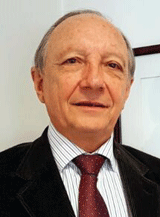 “the
region had a very good relationship with IATA”, common talks being
already at 4th meeting, with “a good negotiation,” where “we
try to make decisions unanimously.” Jorge also said that the “Negotiations
started 20 years ago. There are not so many problems in our region, it
works very well. Maybe some issues with dangerous goods… as prices
increased.” Mexico was said to have issues regarding the guarantees,
but it was noted that this is not a problem at regional level, the negotiations
are in a good way and “we have obtained what we wanted.” “the
region had a very good relationship with IATA”, common talks being
already at 4th meeting, with “a good negotiation,” where “we
try to make decisions unanimously.” Jorge also said that the “Negotiations
started 20 years ago. There are not so many problems in our region, it
works very well. Maybe some issues with dangerous goods… as prices
increased.” Mexico was said to have issues regarding the guarantees,
but it was noted that this is not a problem at regional level, the negotiations
are in a good way and “we have obtained what we wanted.”
Keshav Tanna for IFCC region Asia Pacific apologised
on behalf of Paul Golland and read Golland’s comments, which sounded
less enthusiastic. Speaking as the Chair of FAPA, Golland was disappointed
at the cancellation of the cargo programme, Australia being 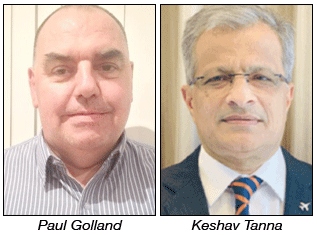 incomprehensibly
rejected, despite a 99% clear payment record. There are many regulations
to be complied with, a modern programme is required that reflects forwarders
being partners of the airlines and not agents. CASS rules for Asia Pacific
lack consistency. Golland’s discourse ended with the indication
that a single global programme be introduced sooner rather than later.
Keshav Tanna concurred in his own comments: CAMP did not take off and
the agreement of Dublin never came to fruition. In this long process the
assistance of those who know the entire history of this relationship is
very important. incomprehensibly
rejected, despite a 99% clear payment record. There are many regulations
to be complied with, a modern programme is required that reflects forwarders
being partners of the airlines and not agents. CASS rules for Asia Pacific
lack consistency. Golland’s discourse ended with the indication
that a single global programme be introduced sooner rather than later.
Keshav Tanna concurred in his own comments: CAMP did not take off and
the agreement of Dublin never came to fruition. In this long process the
assistance of those who know the entire history of this relationship is
very important.
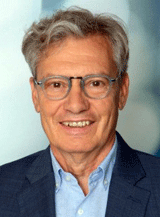 Markus Muecke, speaking as Chair of the
European Air Cargo Programme Regional Joint Council, said he had started
his career in the airlines and then worked as a forwarder. Muecke was
elected to fit this demanding position, being the first chairperson from
the forwarders’ side. In close contact with the ombudsman, Markus
said there had been interactions, trying to keep the communication going.
“The IATA resolution covering the programme dates back from 1976
. . . I have had inquiries from all over the world, as members
did not know where to go.” Markus then gave account of the magnitude
of the programme: 41 countries are part of the European programme. Out
of a 151 billion global freight market, 20 billion is out of Europe and
the European market is probably worth about 80 billion. There are rules
and regulations we need to comply with, e.g. dual use: export import transit
rules can hit forwarders in any part of the world. European air freight
is also multimodal as consignments are moved in all transport modes. Safety
and Security is a top interest for airlines, and cyber security involves
both parties. How many agents have we globally, asked Muecke. Out of 14.000
and the CASS associates, 5,000 agents and 1,800 CASS associates are Europeans.
He also quoted Freightos doing 600 million turnover to ask whether CASS
was still the main payment platform. Markus Muecke also asked how much
of the 20 billion is not paid? Not 50 million, not 20, but only 7 million
is unpaid, was Muecke’s innuendo. So money is collected very well,
he concluded. Muecke also stressed the multicultural environment of the
EU programme, where one subject of the agenda was always agreed upon “we
do not want to let it die”, as we have “lost our voting rights…”
he admitted. One country is completely excluded from CASS and that is
the USA. In conclusion the global network need work together to keep forwarders’
right to express opinions in the records.
Markus Muecke, speaking as Chair of the
European Air Cargo Programme Regional Joint Council, said he had started
his career in the airlines and then worked as a forwarder. Muecke was
elected to fit this demanding position, being the first chairperson from
the forwarders’ side. In close contact with the ombudsman, Markus
said there had been interactions, trying to keep the communication going.
“The IATA resolution covering the programme dates back from 1976
. . . I have had inquiries from all over the world, as members
did not know where to go.” Markus then gave account of the magnitude
of the programme: 41 countries are part of the European programme. Out
of a 151 billion global freight market, 20 billion is out of Europe and
the European market is probably worth about 80 billion. There are rules
and regulations we need to comply with, e.g. dual use: export import transit
rules can hit forwarders in any part of the world. European air freight
is also multimodal as consignments are moved in all transport modes. Safety
and Security is a top interest for airlines, and cyber security involves
both parties. How many agents have we globally, asked Muecke. Out of 14.000
and the CASS associates, 5,000 agents and 1,800 CASS associates are Europeans.
He also quoted Freightos doing 600 million turnover to ask whether CASS
was still the main payment platform. Markus Muecke also asked how much
of the 20 billion is not paid? Not 50 million, not 20, but only 7 million
is unpaid, was Muecke’s innuendo. So money is collected very well,
he concluded. Muecke also stressed the multicultural environment of the
EU programme, where one subject of the agenda was always agreed upon “we
do not want to let it die”, as we have “lost our voting rights…”
he admitted. One country is completely excluded from CASS and that is
the USA. In conclusion the global network need work together to keep forwarders’
right to express opinions in the records.
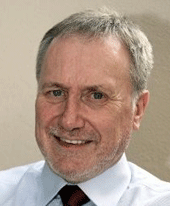 Paul
Cheetham (right) spoke on behalf of Region Africa Middle East:
there is optimism and pessimism in talking to colleagues. Cheetham mentioned
the history of the IFGB with 6 + 6 representatives and said in RAME’s
70 countries, i.e. 40% of the countries in the world, only 19 have a national
forwarding association, with 512 IATA cargo agents. There are many agents
which are neither agents nor represented by a national association. IATA’s
statistics tell us that Africa by far had the largest post-COVID growth
and this will double in the next five years. It is vital that a modern
air cargo programme is introduced reflecting how cargo is dealt with today.
And it must include a provision for joint councils in all regions. A comparison
with the reality of the Canadian Council was then provided by Andrea Tang. Paul
Cheetham (right) spoke on behalf of Region Africa Middle East:
there is optimism and pessimism in talking to colleagues. Cheetham mentioned
the history of the IFGB with 6 + 6 representatives and said in RAME’s
70 countries, i.e. 40% of the countries in the world, only 19 have a national
forwarding association, with 512 IATA cargo agents. There are many agents
which are neither agents nor represented by a national association. IATA’s
statistics tell us that Africa by far had the largest post-COVID growth
and this will double in the next five years. It is vital that a modern
air cargo programme is introduced reflecting how cargo is dealt with today.
And it must include a provision for joint councils in all regions. A comparison
with the reality of the Canadian Council was then provided by Andrea Tang.
In the following Q&A Markus Muecke said
that more engagement on IATA’s side is required in Asia.
 Florent
Noblet of TLF, France introduced a new element: forwarders should be observing
what is happening now between IATA and different maritime interests. Admittedly,
this is not a classical topic for a cargo programme, but the question
on what is behind this partnership was interesting for the discussant,
and for the entire sector I daresay. Florent
Noblet of TLF, France introduced a new element: forwarders should be observing
what is happening now between IATA and different maritime interests. Admittedly,
this is not a classical topic for a cargo programme, but the question
on what is behind this partnership was interesting for the discussant,
and for the entire sector I daresay.
Markus Muecke questioned what was the utility
of CASS, regarding data exchange and payments and his impression was that
perhaps CASS is not even used in the best manner.
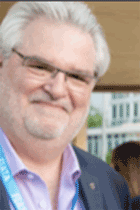 Bill
Gottlieb (left) from Canada said Canadians were happy with FIATA’s
presence at the meeting and suggested there could be a common position
supported by FIATA with the other councils. Bill
Gottlieb (left) from Canada said Canadians were happy with FIATA’s
presence at the meeting and suggested there could be a common position
supported by FIATA with the other councils.
Stephane Graber, FIATA’s DG, intervened
on the risk of taking decisions that could be in contrast with competition
law, on FIATA’s side this aspect being considered very seriously.
The consultations with the other regional bodies appeared to be a very
good idea as the programme “must be global”, but caution is
required here as well, as it should not be or be seen as a coordinated
action that could become competition sensitive. The work on the global
programme needs to be accurate. In principle airlines support a global
programme, but are equally aware of the competition rules limits.
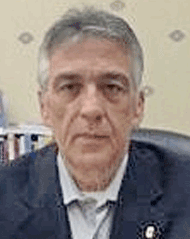 Mr
Luiz Antonio Silva Ramos, of Associacao nacional das empresas transitarias,
agentes de carga aerea, commissarias de despachos e operadores intermodais
(ACTC) from Brazil returned on the topic evoked by TLF and said ship-owners
are buying airfreight companies and building a situation whereby small
companies cannot compete with them. Mr. Heinermann replied that agreements
outside of IATA are not within the agreement, so it might depend on local
situations. Mr
Luiz Antonio Silva Ramos, of Associacao nacional das empresas transitarias,
agentes de carga aerea, commissarias de despachos e operadores intermodais
(ACTC) from Brazil returned on the topic evoked by TLF and said ship-owners
are buying airfreight companies and building a situation whereby small
companies cannot compete with them. Mr. Heinermann replied that agreements
outside of IATA are not within the agreement, so it might depend on local
situations.
 Richard
Gluck, (left) FIATA’s VP and former chairperson of the
Advisory Body Legal Matters, stated that the cargo programme that is running
outside of the U.S. is not allowed in the U.S. and the U.S. model could
also work in other parts of the world. There have been attempts in this
direction and this should be taken into account. Richard
Gluck, (left) FIATA’s VP and former chairperson of the
Advisory Body Legal Matters, stated that the cargo programme that is running
outside of the U.S. is not allowed in the U.S. and the U.S. model could
also work in other parts of the world. There have been attempts in this
direction and this should be taken into account.
From Tanzania came a request for both FIATA
and IATA to assist more in the region: more training is required in the
local industry, but the level of fees could be an issue. Only two institutions
being accredited for dangerous goods and fewer freighters coming to Africa
despite increasing volumes were also signalled.
Considering the long account of the Airfreight
Institute session, maybe we shall have to leave the other morning topics
to another time. I shall however try to keep you for another couple of
minutes to reflect on the Airfreight and Security Cross-Disciplinary Panel,
which closed the afternoon with a discussion that created mixed feelings
in the attendance, and I hear even a few ripples outside of Geneva.
 |
The panel’s no-nonsense concept challenged
everyone in the room: ‘Effective Handling and Transportation of
Unit Load Devices: Addressing Safety, Security, and Best Practices in
Airfreight’. Christopher Licht, Managing Director, Çelebi
Aviation Holding, André Majeres, Head of Cargo Operations, Mail
and E-commerce, IATA (International Air Transport Association) and Dawit
Woubishet Teklemariam, FIATA Airfreight Institute Chairperson, were the
discussants, coordinated by Niels Beuck form Germany, Chairperson of FIATA’s
Advisory Body Safety and Security, and all were explicit in their statements.
Beuck introduced the topic saying that there
is concern about the use of ULD regarding safety and security. Licht observed
that “everyone involved with a ULD is directly involved with airfreight
safety.” The discussion then veered to the issue of training and
bringing staff to the right level, considering there can be no compromise
on safety.
During the open debate, we apprehended that
ULD’s can be covered by foil so that there is a guarantee that the
unit has not been tampered with, in particular when Regulated Agents work
at the ramp. Markus Muecke affirmed that it is a legal offence if an agent
does not operate correctly.
Then André Majeres took the floor
and admittedly resumed IATA’s 20 years old Master Operating Plan
(MOP): there are standards for an efficient operation and there is a gap
analysis, he said, to see if you are operating in compliance [with IATA’s
rules]. The operational risk assessment (ORA) assists in targeting the
weak points. My impression was that the presentation was in fact a lecture,
teaching a class. The discussion which followed showed that there could
be conflicting standards and different level of compliance that are required
by different airlines, despite all efforts to seek harmonisation. The
moderator inquired about possible cooperation on training and DG handling
and André Majeres replied by highlighting IATA’s initiatives
and their validation processes.
In conclusion, IATA’s message was:
“ULD’s are aircraft parts and the only one that goes into
multiple hands, so regulations applicable to the airlines must be complied
with; auditing will be required; IATA want to cooperate and provide any
kind of information necessary”.
Dawit Woubishet Teklemariam concluded that
ULD management is critical for airlines and challenges include lack of
automation and inconsistence in tracking. Benchmarking policies and digitisation
are opportunities to seize without hesitation.
Christopher Licht closed by saying that
it was the right move to get in touch and cooperate more closely. “We
should start where the biggest volumes come through. Raise the awareness
internally: we are one industry at the end and we are all there together,
we should cooperate and stand together as a team to solve the issues,
it can be win-win.”
This was honey to my ears, concluding a
session which puzzled me more than attracted. Despite the expert and effective
moderation enacted by Niels Beuck, the impression of repetition could
not be avoided. The MOP presentation recalled past memories to me, here
in Geneva and elsewhere. “That’s why they formed ULD Care
in the first place in 1971,” said a friend of mine time ago.
Well, after this session you can say that
in 52 years since 1973 Butterfield’s edict the progress has not
been as swift as it could have been, but there has been no bill passed
to limit ULD’s to Mach 1 either: back to square one.
As Mark Twain wrote ages ago: “I was
educated once - it took me years to get over it.” I wonder how many
years more do we have to be educated to get over it.
Marco L. Sorgetti
Turin, March 23rd 2023
|
